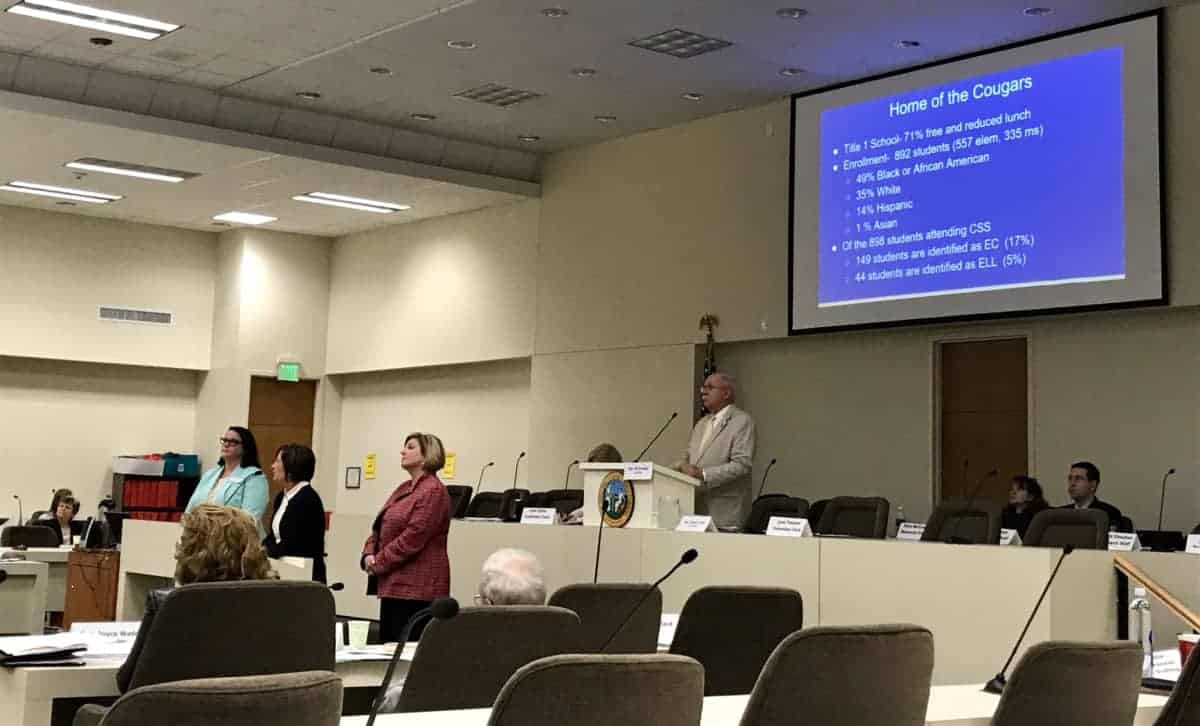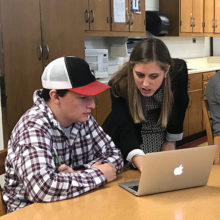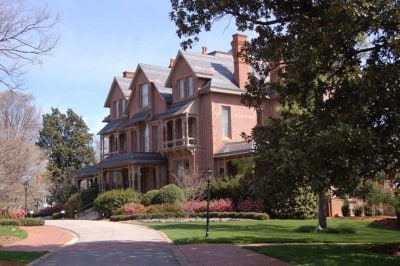The Joint Legislative Study Committee on the Division of Local School Administrative Units met Wednesday to hear from representatives of four schools and one school district. The purpose of the committee is to study whether some of North Carolina’s school systems are too large and should be broken up, so there were questions as to why the study committee was hearing about school programs rather than school districts.
In the last meeting on March 28, Rep. Rosa Gill, D-Wake asked, “It seems like all of the schools that have been invited next week are small schools and not necessarily districts. Is there any reason?”
Rep. William Brawley, R-Mecklenburg, co-chair of the committee, answered, “That is correct. These are not presentations about the school systems for them to come in and tell us how great they’re doing. What we’re looking at is innovative programs that are addressing specific needs of specific populations.”
Gill responded that she did not see the connection between these presentations and the purpose of the committee. She added, “Maybe I’m not clear on what the function of the committee is.”
Rep. Sarah Stevens, R-Surry, Wilkes, stated one alternative to dividing school districts is “looking at their additional programs that might benefit some of these larger divisions.”
The four schools included Advance Academy in Vance County, Contentnea-Savannah K-8 STEM school in Lenoir County, Community High School in Buncombe County, and Sugar Creek Charter School. Charlotte-Mecklenburg Schools (CMS) superintendent Dr. Wilcox presented on CMS’ Project LIFT.
The presenters were chosen based on whether they would “add value into how do you better achieve educational outcomes,” according to Brawley. He stated, “This was not related to size of anything. It was related to are they doing something good that might be worth replicating around the state.”
The presentations highlighted different programs that are seeing success in serving high-need students and are examples of innovative programs thinking outside the box. All presentations can be found here.
Common themes among the presenters included the importance of personalization and flexibility for students and the need for more funding.
On the issue of flexibility, Stephanie Ascuye, principal of Advance Academy, said one of the major selling points of their school is the flexible schedule. Students can come in for a morning session from 8am to noon, an afternoon session from noon to 4pm, or an evening session from 4pm to 8pm. Vance County Superintendent Dr. Anthony Jackson said they are looking for ways to be even more flexible with their calendar, perhaps with year-round schooling.
Flexibility is a major component of Surry County’s next generation high school model, which envisions the high school experience as a combination of a high school diploma, college credits, and career credentials. Surry County created a virtual academy to allow students to have the flexibility to take high school and college classes while doing internships and earning career credentials. Superintendent Dr. Travis Reeves stated, “We’re trying to take learning outside the classroom. It’s about flexibility, it’s about choice, and it’s about personalization.”
Many of the programs featured some degree of personalized learning. Advance Academy uses a blended learning model that gives students personalized, computer-based lessons in conjunction with instructional support. Jackson said, “We’ve learned that kids want personalized learning.”
Surry County’s next generation high school model is personalized and customized for each student. Students take courses in which they are interested through Surry Virtual Academy and work with career coaches to find internships and work-based learning opportunities.
Sugar Creek Charter School also includes personalization in their instructional model, providing individualized support to meet each student’s needs.
Finally, the need for more funding came up in almost every presentation. Principal Janet Greenhoe said Community High School needs funding to pay for their own buses and bus drivers, as some students spend up to four hours per day on the district buses which can discourage them from coming to school.
Surry County made the decision to provide textbooks for free to students taking college courses, which costs them about $90,000 to $100,000 a year. They have had to seek grant funding for their Virtual Academy courses and career coach.
Contentnea-Savannah K-8 STEM School has a host of grants for their many STEM programs, including robotics, a STEM summer camp, a walking track, an outdoor classroom, a pond and bog, and coding classes.
Superintendent Reeves summed it up best, stating, “Funding is always an obstacle when you try to do innovative programs that are outside the norm.”
CMS Superintendent Dr. Wilcox made the only reference to district size, saying, “Size is not the enemy of innovation.” He argued the larger budget of the Charlotte-Mecklenburg school system allows them to hire great teachers and ensures their schools do not have to worry about human resources, purchasing decisions, or other operational concerns.
The next study committee meeting will be April 11 at 1:30 p.m. Brawley stated the committee should have a draft report ready by then on findings and recommendations. There will be no draft legislation.



